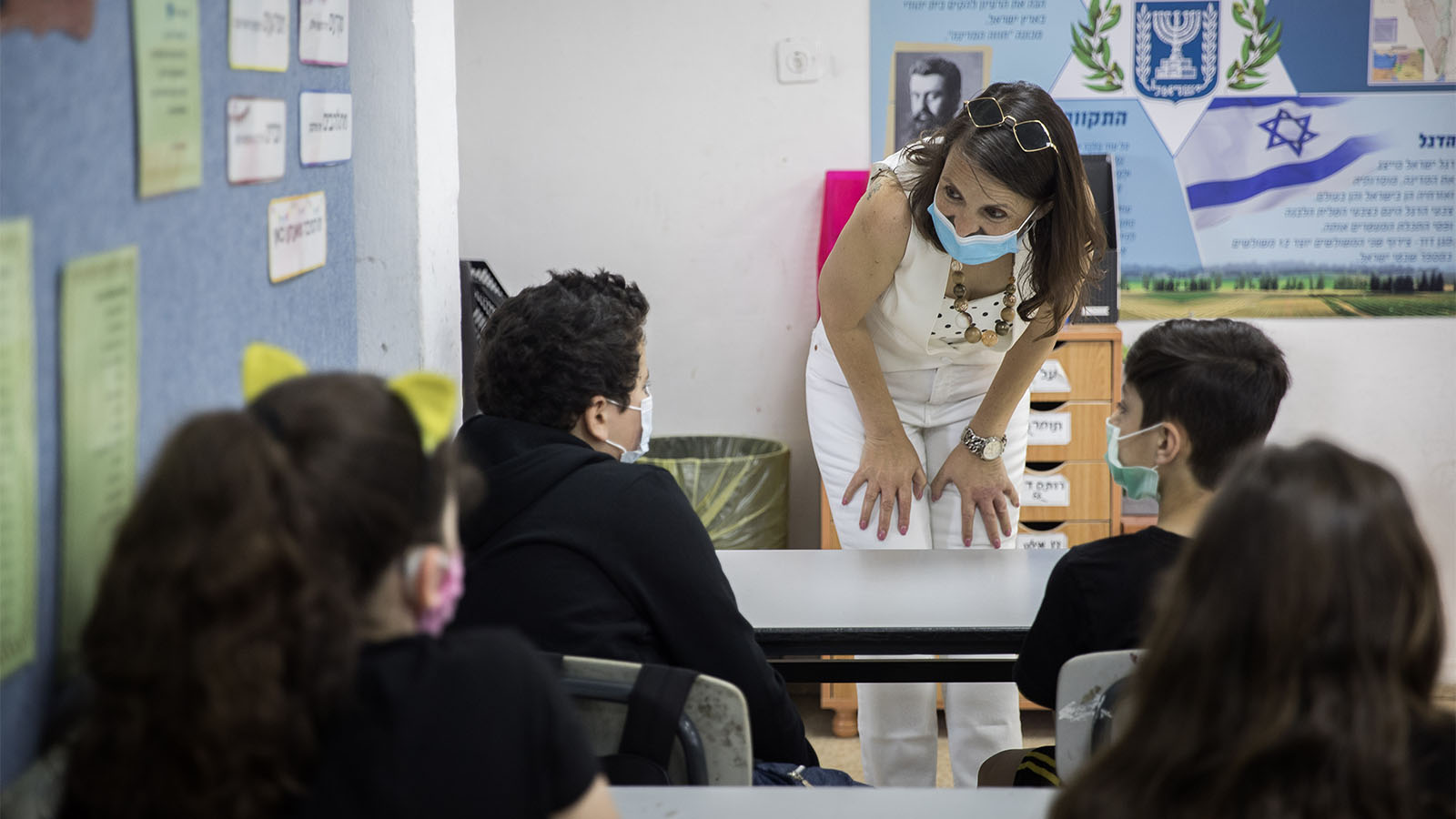
A wise man once said, “for a person with a hammer, every problem looks like a nail.” The relationship between the government and the teachers in the last few months, which reached a breaking point with the failure to force high school teachers to extend the school year, fits this saying perfectly.
The “hammer” not only symbolizes the aggressive tactics taken against the teachers, but also the way of thinking that sanctifies the free market as the single and exclusive principle, and neglects other principles, such as dialogue, long term preparation, and fair labor relations. The management of the crisis in the education system raises doubts about the government’s ability to deal with the ongoing corona pandemic and the impending second wave.

Since the start of the COvid-19 crisis, the government has been functioning erratically, disconnected from what’s happening on the ground and with deep disregard toward the teachers. Instead of praising them on their quick arrangements for long distance learning, senior officials like the Director of the Finance Ministry, Shai Babad, publicly expressed disrespect for their work and even announced that they would not be paid. Schools opened hastily, without clear guidelines, and finding an agreed-upon outline for the end of the school year was postponed until the last minute, after the diplomas were already handed out.

The government saw the education system as a tool that would enable parents to return to work. From that point of view, there is no great value to long-distance learning. This way of thinking does not allow for a balance between different needs. Instead of collaborating with the teachers to create a structure that meets both the employment needs of the parents, the rights of the teachers and the needs of the students, and budgeting for it, the government pulled out the hammer and demanded that the teachers sacrifice themselves on the altar of the free market.
When the unionized teachers refused, the government threatened to punish them via cuts in their wages, and by sending them back into schools even though that would put them and their students in danger of exposure from the virus. Restarting the economy is of dramatic importance for the Israeli economy, but the government could have planned and managed it better.

Education Minister Yoav Galant entered his position in the midst of the crisis, when the problems were already at their peak. Instead of fixing the situation, he acted like an army commander trying to show who’s boss, and delivered orders to the teachers about how the end of the year should look. The move was unsuccessful and the Ministry failed on two accounts: the teachers didn’t give in, and their trust was broken.
In terms of the solution that was ultimately found – the extension of “Summer School” program – it had been possible to come to that conclusion two months ago, and to provide the appropriate budget. The Education Ministry’s fight to extend the school year for secondary schools exposed how cut off they were from reality: it was clear to every teacher, parent and student that no student would step through the school gates a day after the original end date of the school year.
The ones to put an end to the nonsense at the last minute turned out to be the judges at the Labor Court, who unequivocally supported the teachers. The government would do well to internalize their message in other areas as well: that workers have a voice, that they need to be treated as partners in meaningful processes of change, especially during times of crisis, and that their work must be respected and appreciated – and of course, paid.
While the government was busy making threats and pulling solutions out of a hat, there were workers on the ground who were carrying society’s welfare on their shoulders – the teachers who continued to teach, the bus drivers, the social workers, the doctors, nurses and firefighters. The government needs to see them as allies, not enemies. Now is the time to set aside the “hammer” of the free market, and to pick up a pen and paper where the government, workers and the public will make a long term plan for dealing with this crisis together.






